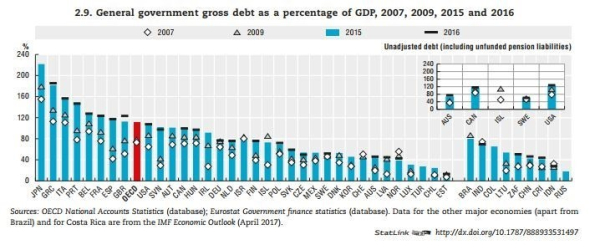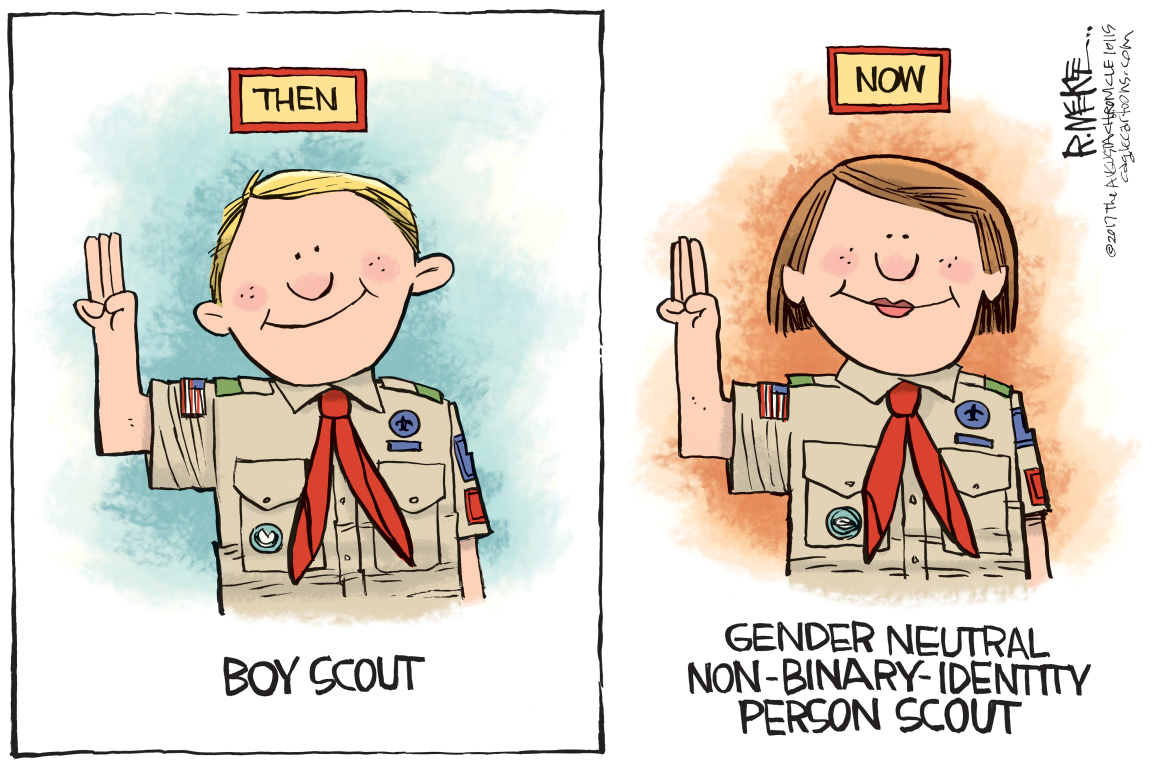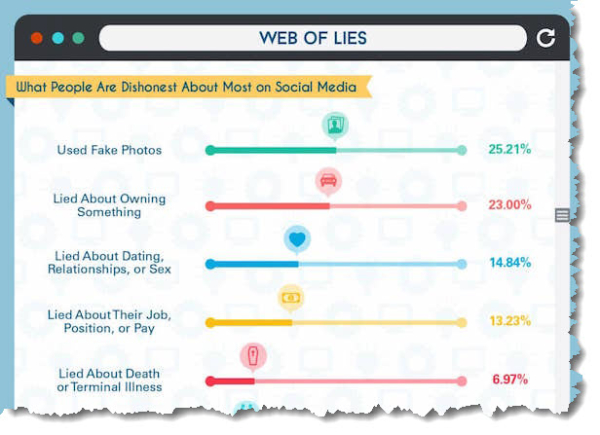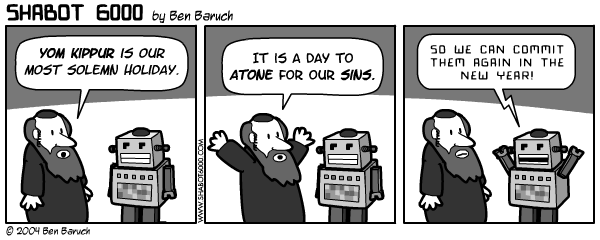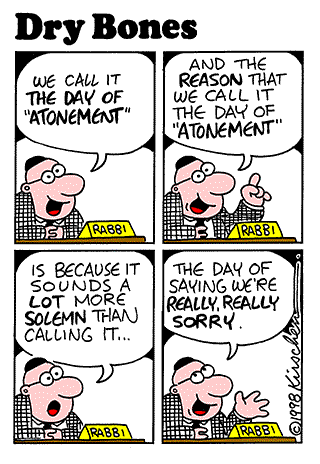There's a lot of "hype" these days. Social media and tools like Kickstarter would have you believe that every new idea is the "next big new thing".
In contrast, Gartner's Hype Cycle Report is a considered analysis of market excitement, maturity, and the benefit of various technologies. It aggregates data and distills more than 2,000 technologies into a succinct, contextually understandable, snapshot of where various emerging technologies sit on the hype cycle.
Understanding this hype cycle framework enables you to ask important questions like "How will these technologies impact my business?" and "Which technologies can I trust to stay relevant in 5 years?"
What's a "Hype Cycle"?
As technology advances, it is human-nature to get excited about the possibilities we imagine … and then to get disappointed when those expectations aren't met.
At its core, the Hype Cycle tells us where in the product's timeline we are, and how long it will take the technology to hit maturity.
At this point in time, Machine Learning/Deep Learning and Connected Homes are at the peak of their hype cycles … Meanwhile, Augmented Reality and Blockchain have matured past the hype phase (with Self-Driving Cars following close behind).
This year, according to Gartner, there are three overarching "mega-trends" to watch.
- AI Everywhere shows the transition towards a ubiquitous AI experience, from self-driving cars, to machine learning, and to smart robots. Consider the impact on traffic/accidents with the adoption of autonomous vehicles, or the ability of machine learning to process more data faster.
- Transparently Immersive Experiences shows our transition towards human-centric contextual and fluid technological experiences. – like Connected Homes or Virtual Reality. Consider the impact of Augmented Reality on advertisements or gamification.
- Digital Platforms shows the transition of emergent platforms into adoption. Platforms like Blockchain, IoT, and Quantum Computing. Consider the effects of bitcoin and other blockchain initiatives, as well as the opportunity for new business models centered around these platforms.
Here is the chart. You can click the image to see it larger.
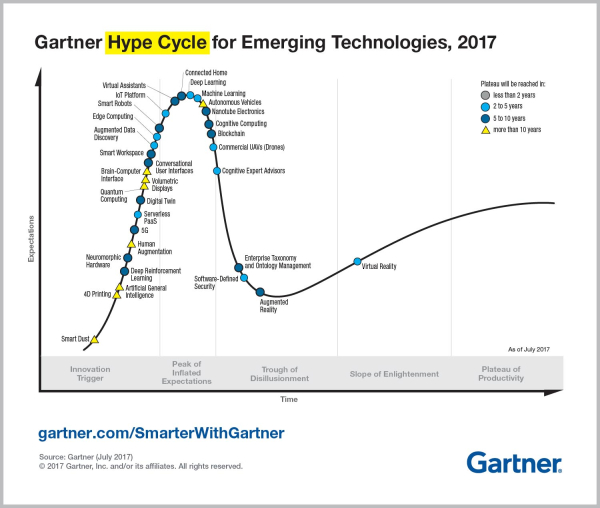 via Gartner
via Gartner
For comparison, here is the chart from last year; and you can check out my article on 2015's hype cycle here.
 via Gartner
via Gartner
The hype cycle gives us an idea of which of these technologies will likely survive the market hype and have a potential to become a part of our daily life.
Here are the five regions of Gartner's Hype Cycle framework:
- Innovation Trigger (potential technology breakthrough kicks off),
- Peak of Inflated Expectations (Success stories through early publicity),
- Trough of Disillusionment (waning interest),
- Slope of Enlightenment (2nd & 3rd generation products appear), and
- Plateau of Productivity (Mainstream adoption starts).
Which technologies do you think are over-hyped … and which ones might survive the hype?
I find this stuff fascinating. Consider some of the interesting technologies just starting their hype cycle:
We live in amazing times!
Onwards.



